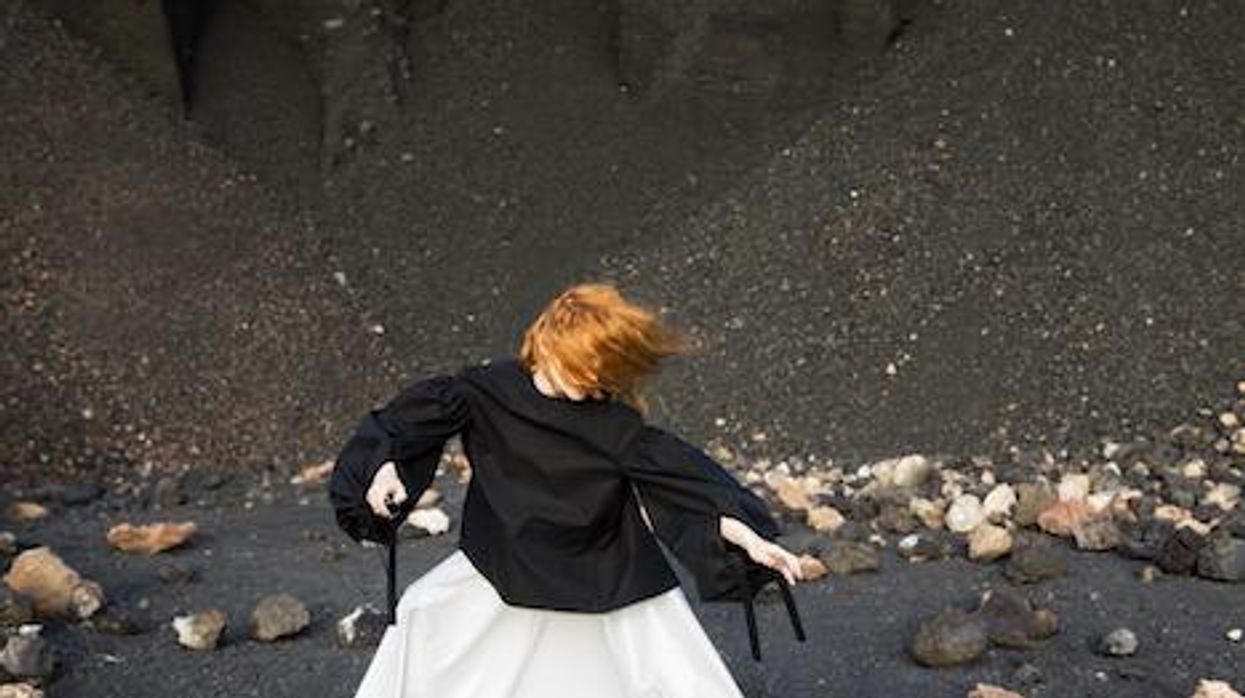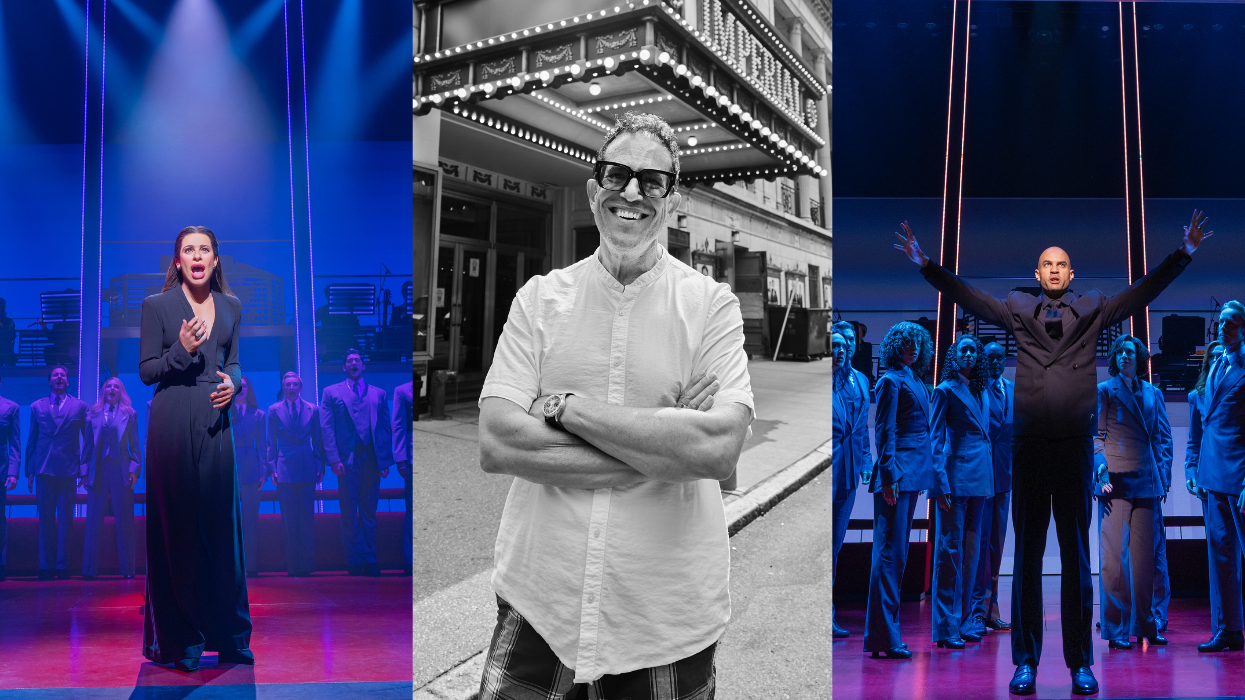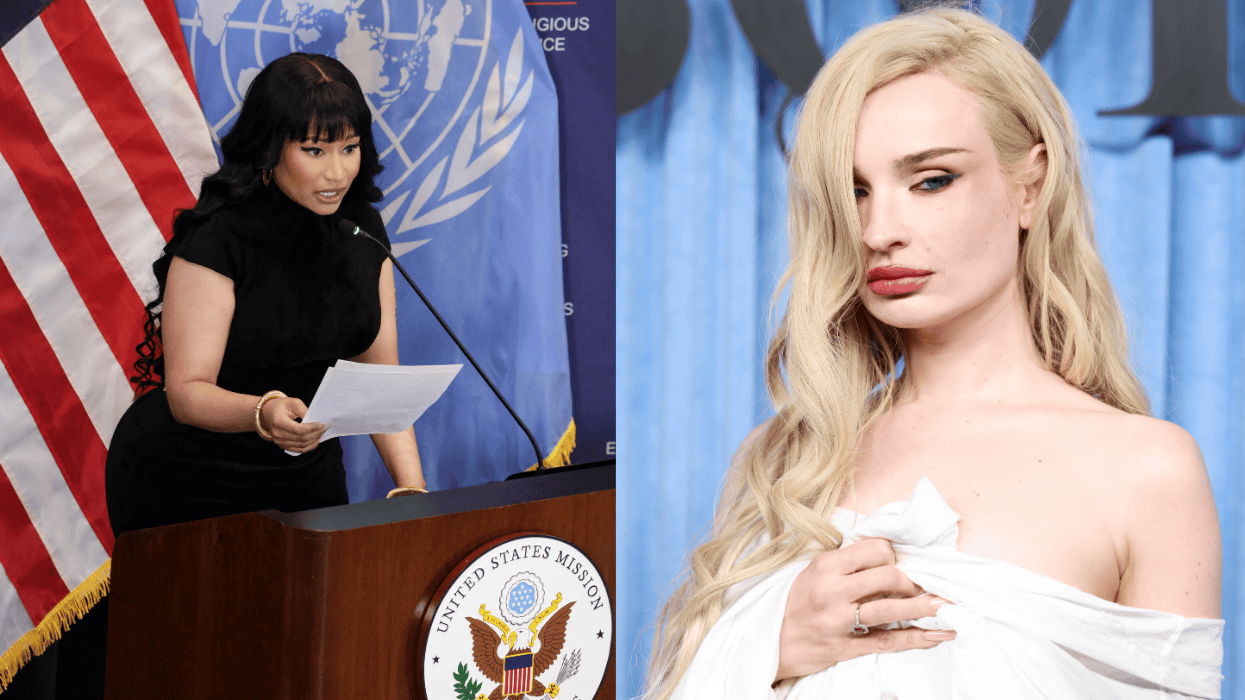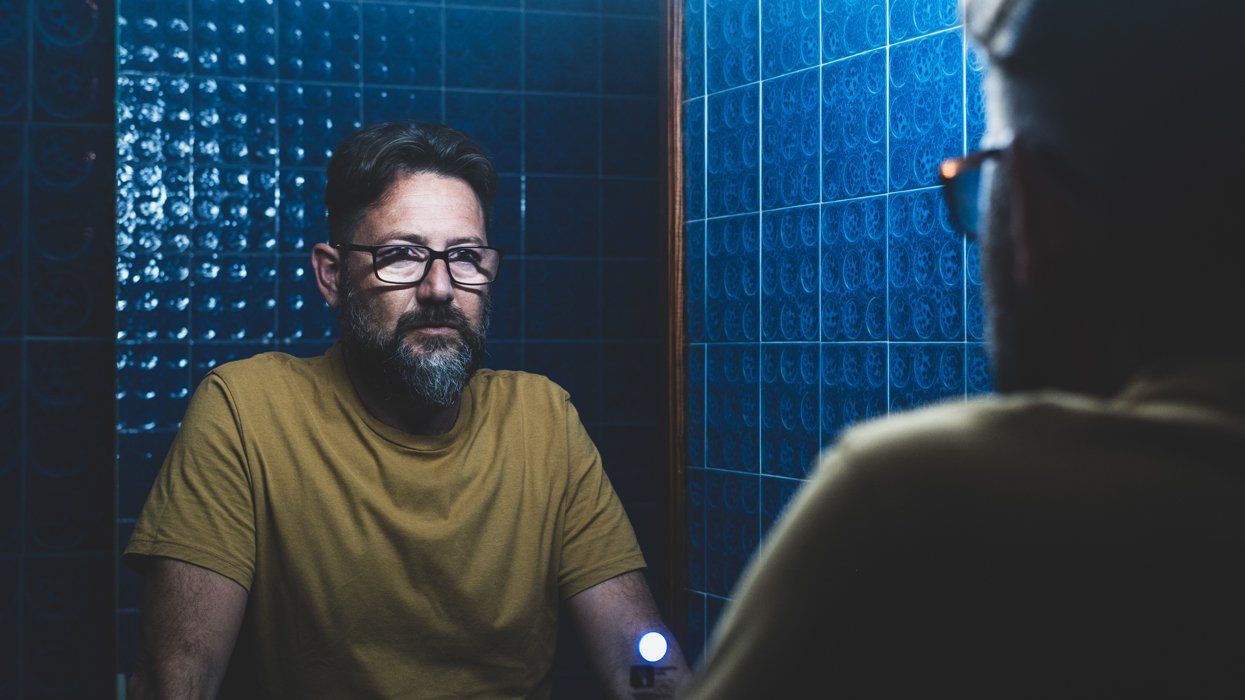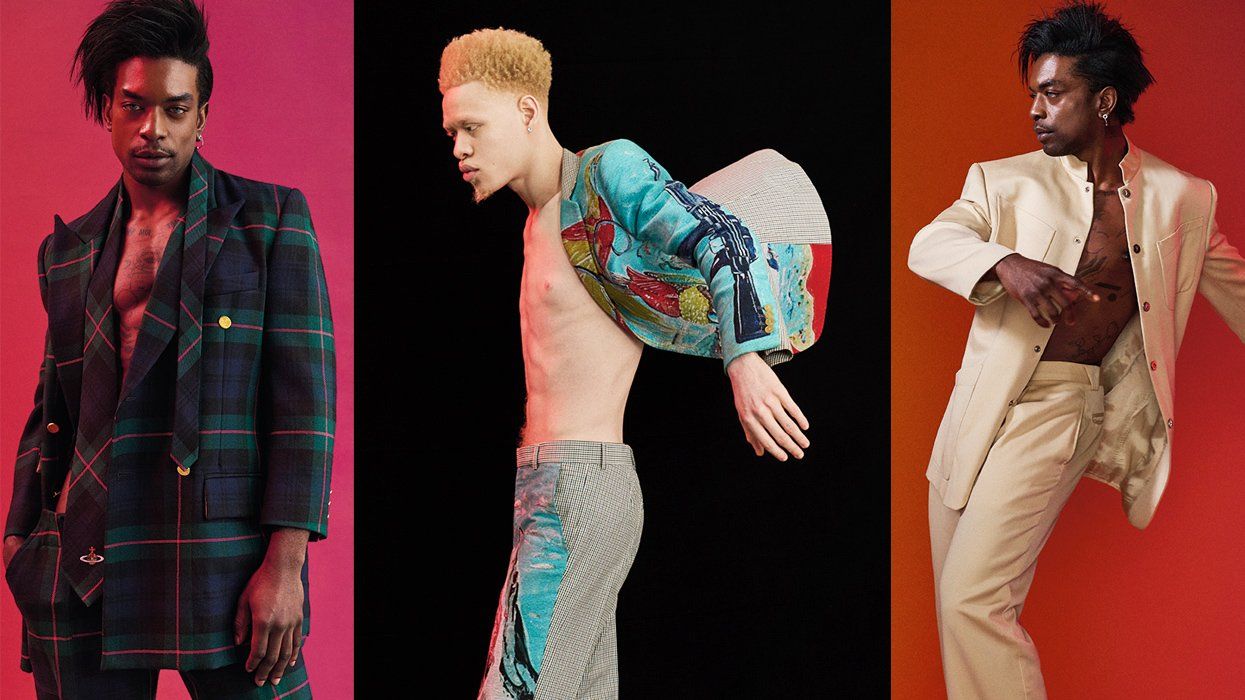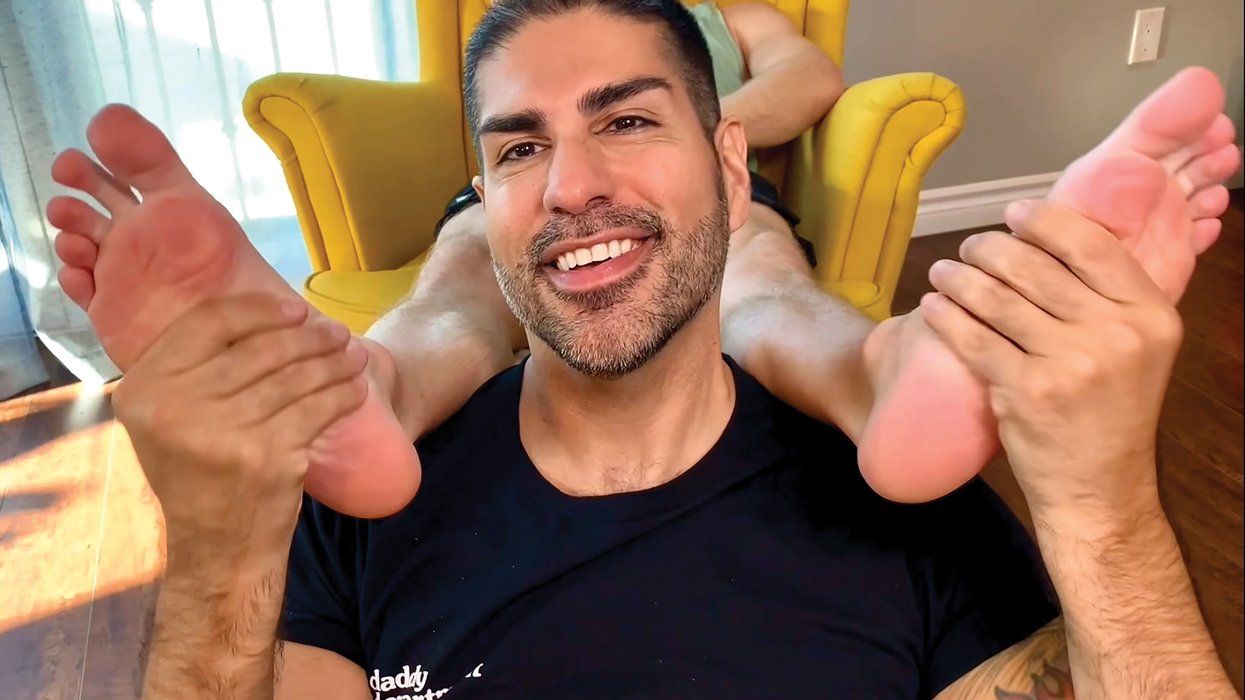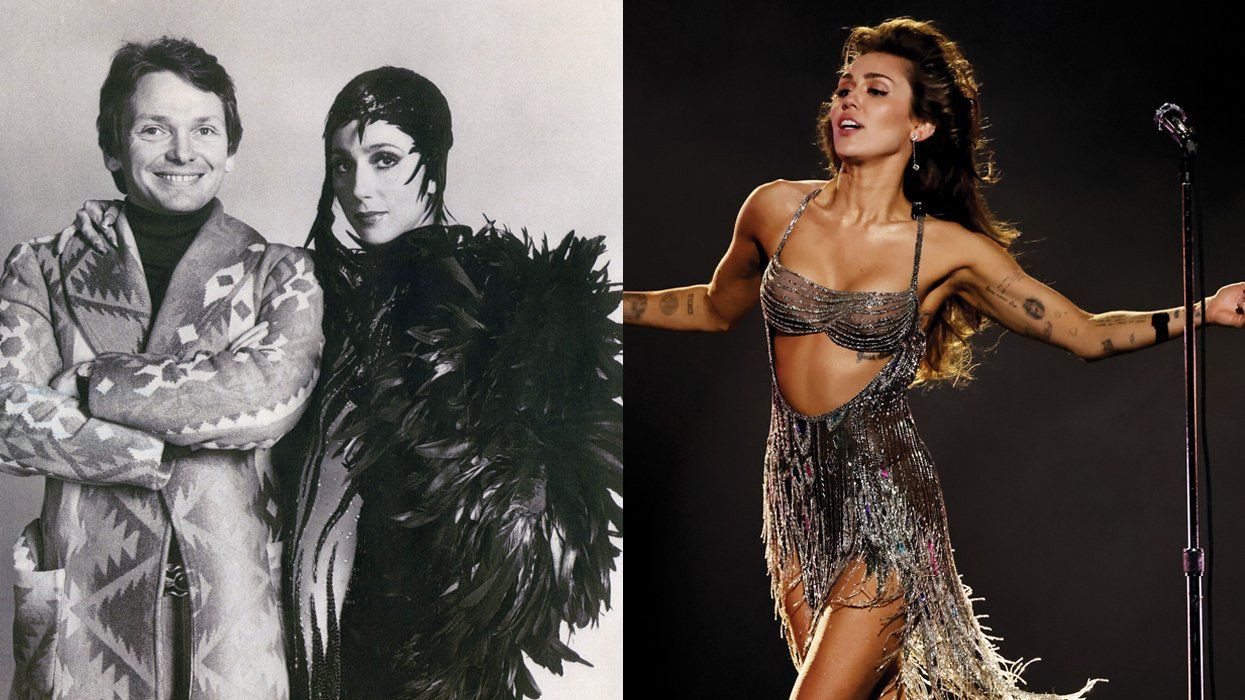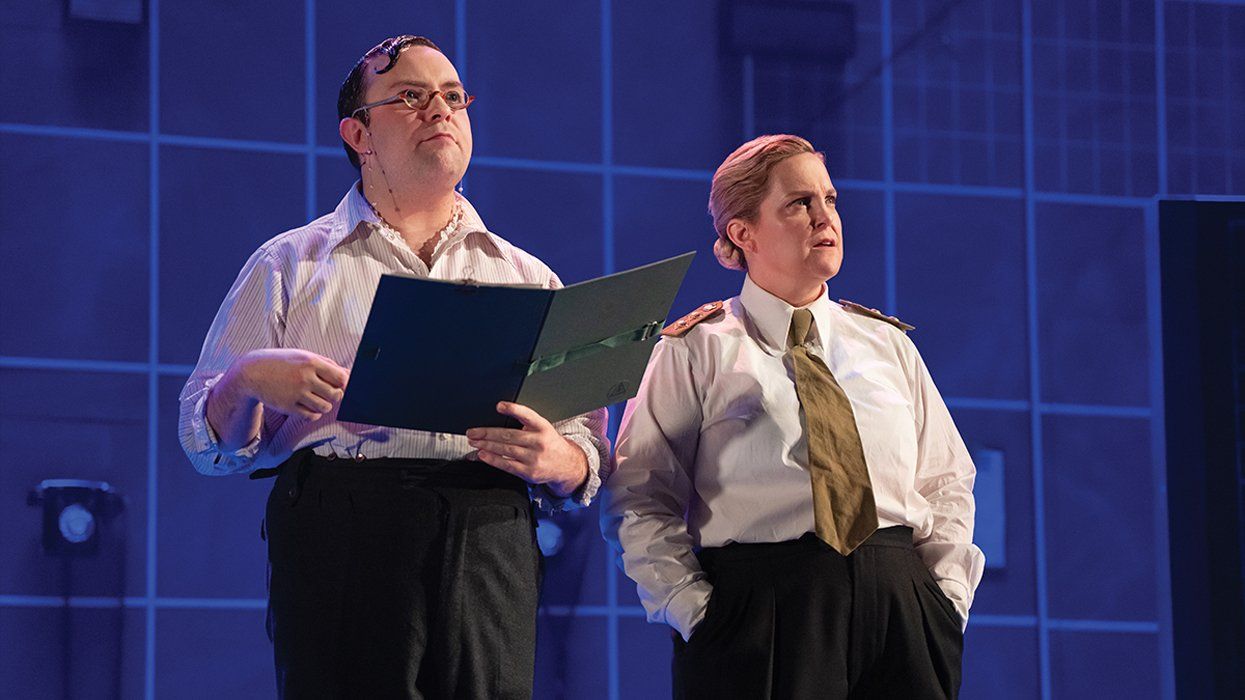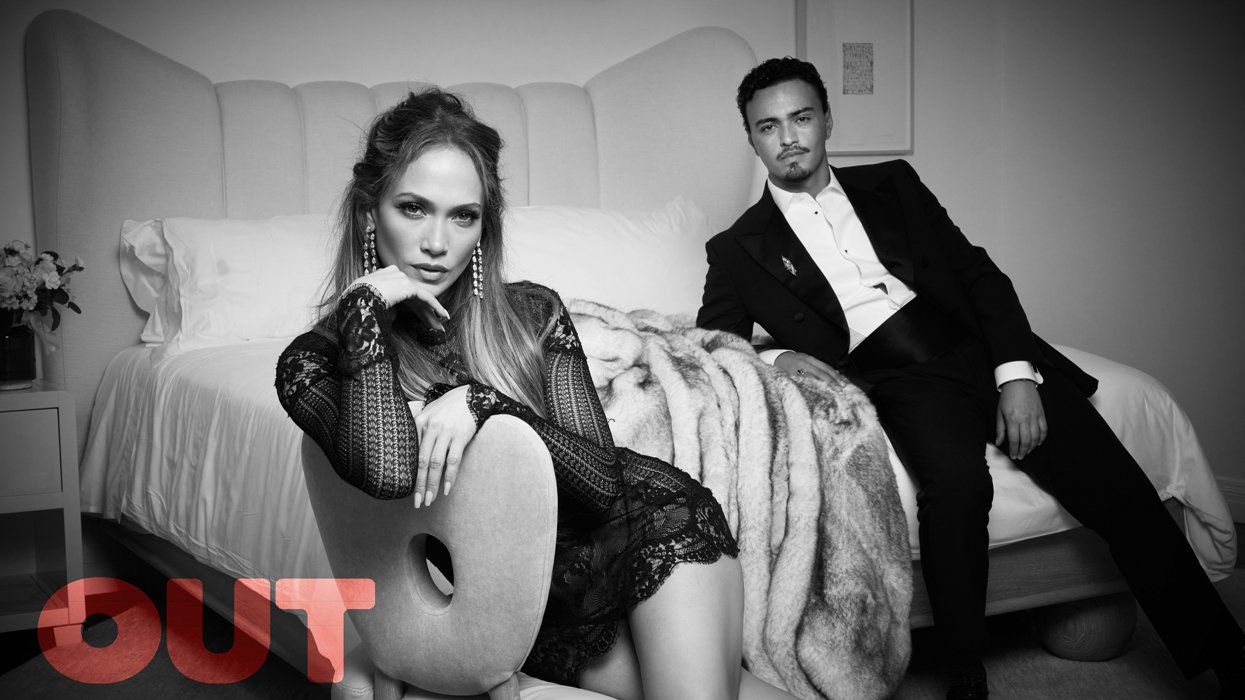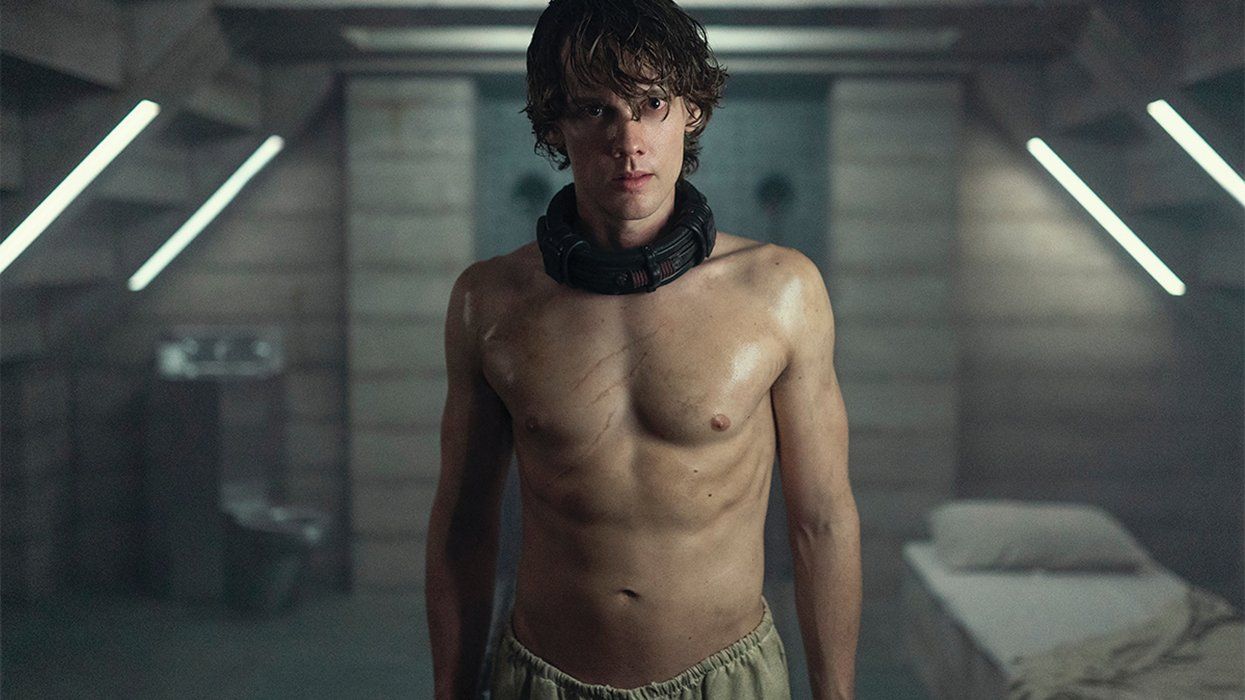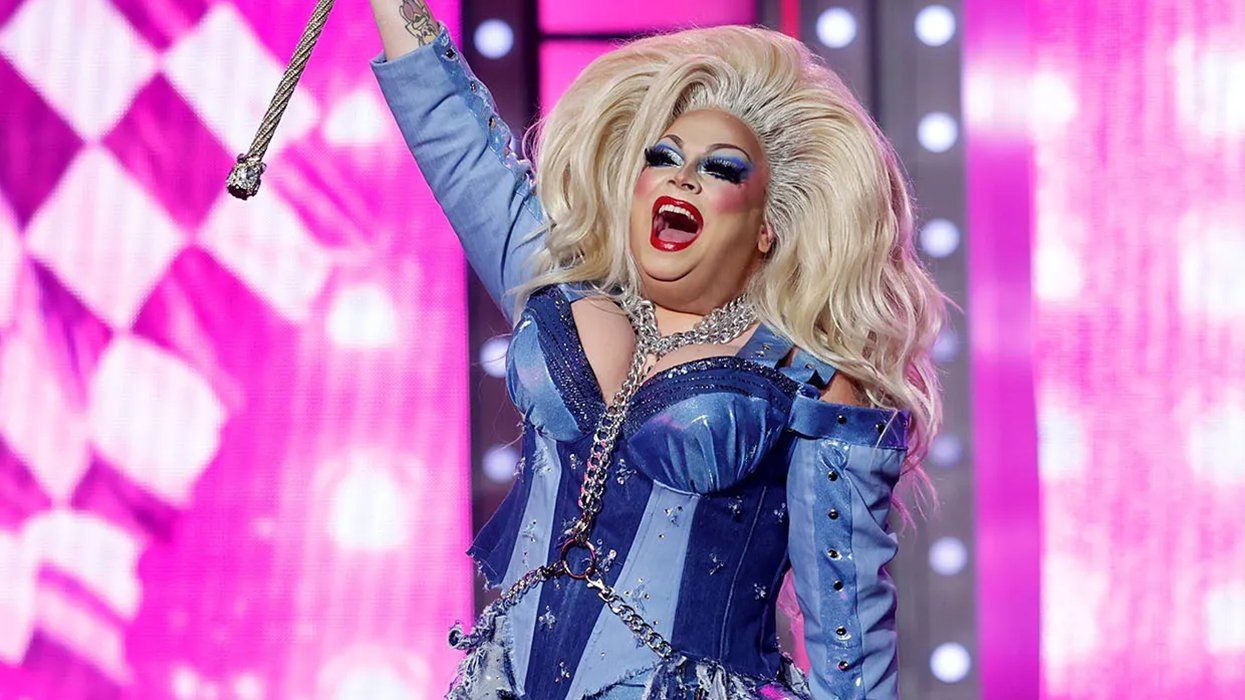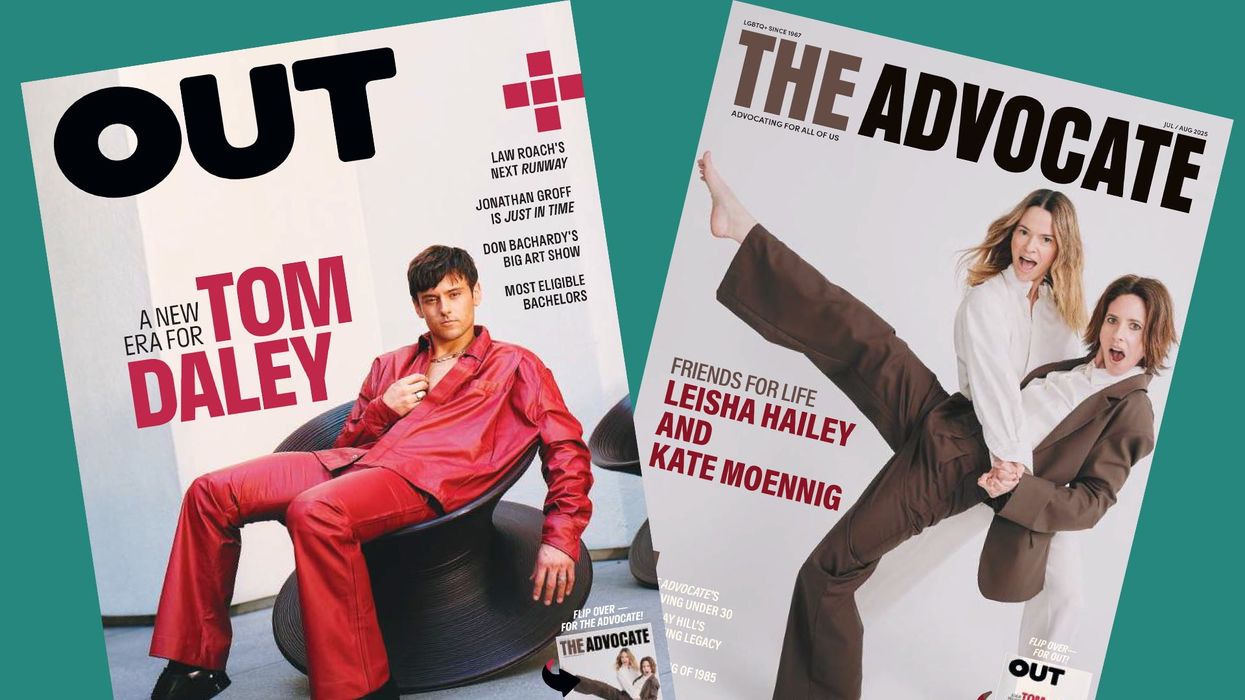Two core pillars have supported Goldfrapp's 17 years of music-making, the first being an admiration of mythical whimsy and the second an eagerness to unpack the complexities of electronic. Together, these are always at play when collaborators Alison Goldfrapp and Will Gregory create, at times leaning on one more than the other.
Goldfrapp's 2013 release Tales of Us saw the duo exploring a dreamy, acoustic atmosphere that reflected back on their debut, Felt Mountain, and Seventh Tree. Goldfrapp's Black Cherry and Supernature, however, wrestled with throbbing, cinematic synths and sexy lyricism to produce career-defining singles, "Ooh La La" and "Strict Machine." On their seventh studio album, Silver Eye, Goldfrapp balances evenly on both pillars, delivering hot, metallic dance songs charged with otherworldly inspiration--a 21st century moon dance that celebrates transformation and honors nature.
Related | Alison Goldfrapp on Sexuality, Identity in New Album, 'Tales of Us'
The project's lead single, "Anymore," is a proper first introduction to Silver Eye's world, with its pulsating production and sexy, elemental lyrics. "You're sent like stars; it's well divine," Alison purs above an incessant, fizzly instrumental. "I want your love; all of the time." The track's music video was directed to reflect Goldfrapp's nature-imbued LP, captured at Fuerteventura--a volcanic island in the Canary Islands--with its rolling dunes, dramatic cliffs and expansive blue skies. This location ultimately inspired the visual language for Silver Eye, featuring album artwork framed around the island's beautiful black sand.
Related | Goldfrapp's 'Anymore' Video is a Dance-Heavy Desert Spectacular
Ahead of the album's official premiere on March 31, we caught up with Alison Goldfrapp to break down her forthcoming full-length. Read our full conversation and stream the exclusive OUT premiere of Danny Dove's "Anymore" remix, below.
OUT: All your albums have very noticeable differences, both sonically and visually. Why such strong shifts in direction each time?
Alison Goldfrapp: It's funny, isn't it? Because it's definitely not a conscious thing, but at the same time we never like to repeat ourselves. I kind of like the spontaneity of not really knowing what's gonna happen next. I like not having a formula--I don't want to have a formula. I want to keep pushing things, trying out new things and using stories. I suppose I see them like stories, really. Each album has its own narrative, and has its own identity, mood and atmosphere.
With the new album, we wanted to do something electronic, but weren't quite sure how to go about doing that to begin with. It took a while to get into the swing of things. We wanted to do something a bit like Supernature, but at the same time we didn't want to repeat ourselves, so it took us a while to discover how to make that sound world again and feel like we were still doing something different and new.
Why was Supernature a desirable point of reference this time?
I really like Supernature and some of the things we did on Black Cherry, I feel like they have a sound that I much preferred. It's very electronic, I suppose. When we first started making this new album, we were still using some acoustic instruments, like the drums were acoustic, and then we slowly realized we didn't want anything acoustic in it. And Head First, for me, wasn't as successful as Supernature creatively or musically or anything, so I suppose that's why I refer to Supernature because for me that was more of a sound world I really liked--especially playing it live. I still really enjoy playing "Strict Machine" and "Ooh La La" and "Black Cherry." I never get bored of playing those songs live.
What do you think makes a successful album?
I guess the sound. I mean, the production and sound is such a huge thing for us--it's very much a part of the writing process. When we start writing, we're thinking about the feel and the atmosphere, and then, of course, the kind of songs and subject matter. I don't know, there are so many things. It's quite hard to put a finger on any [one]. I think it's just a combination of lots of things--synergy and sometimes things just sort of work, don't they?
You haven't released an album since Tales of Us in 2013. What have you been up to?
We toured the record for about a year and a half, so that took up quite a bit of time. And then we actually wrote the music for a play that was on a national theater in London, so that was a new area for us--something we really enjoyed actually. We did have a little bit of a break, but not very long--six months or something and then we got back into the studio. It did take us a while to get back into the studio and figure it out. We were quite determined not to rush it.
Did writing music for a play affect the songwriting on Silver Eye?
No, it was a completely different process. You know, when you're writing for something else, and for someone else--yeah, no. Well, not that I'm aware of anyway.
"Anymore" is the new album's lead single. Why did you choose that as a proper first introduction?
It just felt very natural. To be honest, there are so many of the songs I really like. It could've been any of them, actually, and I would have been quite happy. But I guess it's very strong and direct too, which is nice to come back with something very definite. I feel like it really says, "Hello, we're here!" Direct is the word--there's a directness to it, where maybe the others are a bit more ambiguous.
What's the relationship between production and songwriting in the studio?
I'm always collecting ideas and always have a book that I write little lyrical ideas down or maybe it's just even a word or a sentence. But really it's not until we're in the studio and we're working together that things really happen. We spent a lot of time improvising and that's a really good part of our songwriting process. Because you can have all these plans in your head, but it's not until you really start doing stuff that you discover what it is that you're doing or want to do or what you don't want to do. Improvising is a huge part of what we do, and we try and preserve as much as that stuff. We record absolutely everything we do, so quite often we try and keep some of those little improvisations in the albums.
Your albums are always so visual. Why is that important to you?
For me, music is a visual experience and I feel like the visuals are just another way to express or translate some of the ideas. It's another way of creating a narrative. I feel with this new album, a lot of the themes are about the elemental and the idea of shamanism or mysticism, rituals, ecstasy and transformation. There's a huge vista of things to discover within those worlds. You get some kind of atmosphere from all those things... there's so much to do with the moon on this album. Having an organic element in there is very important [and] something I'm really inspired.
What is it about the moon that interests you?
What is it with this bloody moon? (Laughs) I don't know, I suppose I like the mystery of it. It's this beautiful thing that's there every day. I love looking out of the window at it, it makes me feel safe. I guess we live in a world that just feels so crazy and insecure and a song about looking at this big rock in the sky that's shining and it's been there and it's hopefully going to remain there forever. And it's relatively unscathed by human beings, so I treasure it. It's been there all my life. It's very precious and I love all the mythology and the literature. It's something that my dad was very into when I was growing up. We would go swimming when there was a full moon. We'd drive down to the seaside and, no matter what kind of weather it was, if there was a full moon we all had to get in the car and drive down to the sea and swim at night. It still has this element of mystery.
You shot your "Anymore" music video on Fuerteventura. Why'd you choose that location?
I love it there; I've been there a few times. I'm really into rock and volcanoes and all the metaphors that go with that--all the symbolism. There's something so vital about it. I love to be in nature. There's something about the desert and the volcano and that kind of aesthetic that I love, too.
What's the story behind "Become the One" off Silver Eye?
It's about becoming the person you want to be--becoming the thing that you want to be. Looking inside yourself and having the confidence to change, or not even change, just become the person you want to be. It's not about changing, it's just about becoming. I think we all can relate to that.
It was inspired by an American documentary I saw [called My Transgender Summer Camp] about kids in a transgender summer camp. There's a little girl in it that was so articulate about how she felt and I found it really inspiring. She said, right at the end of the documentary, "I'm not changing, I'm just becoming the person I know I am." I thought that was so profound, deep and inspiring. I think you can relate that to anything. It doesn't matter what you want to do or who you want to be or who you are, we can all relate to that. We're all trying to become something we want to be, aren't we? Sometimes it takes quite a lot of power and confidence to do that.
A post shared by Alison Goldfrapp (@alison_goldfrapp) on
You've been getting more heavily involved in photography. What sort of subjects do you enjoy shooting?
I'm sort of still discovering that really--I'm still very much a beginner. I did a bit of photography when I was at art school and then for a long time I didn't do anything. I've kind of got back into it in the last couple of years. Instagram definitely played a big part in that. I'm still discovering a visual language with the camera. I love taking pictures of anything and everything, really--anything that catches my eye. I love taking pictures of people and landscapes or people in landscapes. I'm quite into texture and abstraction, even if it's with nature and people.
The world is in such a crazy state. What do you think is music's role in shifting things?
I think art and music represent freedom and I think freedom is being threatened by a lot of politics, right now. I feel that it's as important as it's ever been to have that freedom. You can't put a value on music or art. That's the whole point of it and for that reason, it's very relevant.


